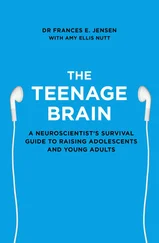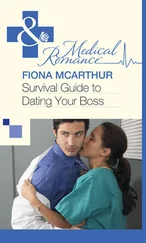Dee Snider - Teenage Survival Guide
Здесь есть возможность читать онлайн «Dee Snider - Teenage Survival Guide» весь текст электронной книги совершенно бесплатно (целиком полную версию без сокращений). В некоторых случаях можно слушать аудио, скачать через торрент в формате fb2 и присутствует краткое содержание. Жанр: Детская образовательная литература, на английском языке. Описание произведения, (предисловие) а так же отзывы посетителей доступны на портале библиотеки ЛибКат.
- Название:Teenage Survival Guide
- Автор:
- Жанр:
- Год:неизвестен
- ISBN:нет данных
- Рейтинг книги:4.5 / 5. Голосов: 4
-
Избранное:Добавить в избранное
- Отзывы:
-
Ваша оценка:
- 100
- 1
- 2
- 3
- 4
- 5
Teenage Survival Guide: краткое содержание, описание и аннотация
Предлагаем к чтению аннотацию, описание, краткое содержание или предисловие (зависит от того, что написал сам автор книги «Teenage Survival Guide»). Если вы не нашли необходимую информацию о книге — напишите в комментариях, мы постараемся отыскать её.
Teenage Survival Guide — читать онлайн бесплатно полную книгу (весь текст) целиком
Ниже представлен текст книги, разбитый по страницам. Система сохранения места последней прочитанной страницы, позволяет с удобством читать онлайн бесплатно книгу «Teenage Survival Guide», без необходимости каждый раз заново искать на чём Вы остановились. Поставьте закладку, и сможете в любой момент перейти на страницу, на которой закончили чтение.
Интервал:
Закладка:
I was a late bloomer, always adapting to trends just after they'd gone out of style, and so even though I'm now past thirty, I still feel terminally teenage. And if it makes you feel any better, I'm just now coming to terms with and understanding some of the emotions I felt during my youth. I've often thought how much better off I might have been had I come to terms with those things earlier on, or at least understood that it would all pass. Having fulfilled my dreams of becoming a rich and famous rock & roll star and finally having reached a point where I feel good about myself, I believe I can reflect honestly on both the positive and negative parts of my "teen years" (I hate those words) and be objective. At times, painfully objective. We all need an objective outside party sometimes to help us analyze a problem more clearly. I'm sure many psychologists will give me free objective advice after they read this book.
For example, Twisted Sister always hires a producer for each album we record, because we are so close to the music it can be hard to hear what's good and what's not so good. So maybe this is my role with this book—to act as an unbiased observer. And being a parent myself—of a four-year-old son, Jesse—hopefully I can shed some light on your parents' attitudes and their frequently irrational behavior. Becoming a parent definitely helped me understand the conflicts I had with my own parents.
When I was growing up feeling confused, there were few places to turn for help. I couldn't talk to my parents, my friends or my teachers, so I received answers to some of my questions through the songs of my rock & roll heroes, like Alice Cooper and Led Zeppelin's Robert Plant. Rock & roll was my only outlet and at times my only friend. But you can get only so many answers from a three-minute song. Unless you're a Rush fan.
I remember seeing a book in my school library, 'Twixt Twelve and Twenty, first published in 1958 and written by a squeaky-clean pop-singing idol you may have heard of: Pat Boone, Deb-by's dad. In 1987 you would title it 'Twixt Ten and Twenty, or even 'Twixt Eight and Twenty because kids today confront social and moral problems at an increasingly earlier age: Teenage pregnancy, alcohol and drug abuse, and suicide are spiraling rapidly. Every generation likes to believe that its teen years were the most unbearable, but we all know that you guys face countless more choices and pressures than ever before. When I was in my early teens, I had little knowledge of sex and drugs but was concerned mostly with keeping my baseball glove well oiled and my record collection well stocked.
Some adults would contend that those were simpler, healthier, happier times and ways. Certainly simpler. But whatever they were, we will never go backward. For better or worse, this is the world we live in. Teenage Survival Guide addresses the realities and the challenges of growing up in the 1980s: sexuality, the dangers of drugs and drink, child abuse and birth control, as well as timeless matters such as individualism, coping with peer pressure, the search for self-identity and masturbation. (Not necessarily in that order.)
Teendom Can Be Tough
Adolescence is both awesome and difficult—although the awesome part sometimes doesn't show up until you're out of your teens and have the benefit of hindsight. It's a time of unexplainable inconsistencies; Your body grows, your voice drops; you can't grow a mustache but your face has a nice crop of pimples; at about the time you finally become interested in the opposite sex, the opposite sex shows a definite lack of interest in you; your parents demand that you "be mature/' yet "don't act so smart" (whatever that means).
You're treated like neither a child nor an adult but somewhere in between. To paraphrase from one of my favorite songs, Alice Cooper's "I'm Eighteen," you're a boy and you're a man, or you're a girl and you're a woman (or you're a man and a woman. If this is the case, see the chapter Help Yourself.) Even Pat Boone griped on behalf of teenagers thirty years ago: "We feel that we're set apart, shooed off together, accused as a group." Society has always placed adolescents in limbo. As a matter of fact, the word teenager didn't even exist until forty-five years ago, because back in your grandparents' day, young people went directly from childhood into adulthood, usually by getting married in their mid- or late teens.
Adolescence, incidentally, comes from the Latin word adolescere, meaning "to grow into." (Yes, I am a fountain of knowledge.) I think this means that you are not yet the person you will be. Parents, teachers—all adults, it seems—are so busy trying to "mold" you, they neglect to see that you already have been molded to quite a degree and are an individual.
But who is that individual? Is it the awkward, shy boy or girl whose eyes still fill with tears anytime you're reprimanded by a teacher, or is it the manly or womanly person you feel like when you're with your friends? Your emotions seesaw back and forth in control, floundering, ecstatically happy, desperately sad and usually all in the course of a school day. I remember how drastic the ups and downs could be:
You walk to school, meet your friends on the way, go directly to home room and everything is cool. Your first class is English, but you breeze through it because your teacher is asleep too. You're in a good mood.
Second period. Damn. You've got gym next. This forces you to pass auto shop, where that big jerk Kawalski hangs out eight periods a day. The last time you walked by, he used your arm as a wrench "because it's Wednesday; I don't like Wednesday”. Now, this little drama is going to last all of two minutes, yet you're frantic, You look outside. It's January. It's freezing cold, there's snow on the ground. You have a choice; either take your chances slipping past auto shop, maybe trying to camouflage yourself in the jungle of students on their way to class, or risk terminal pneumonia by entering the locker room through the outdoor entrance. After all, what if Kawalski doesn't like the month of January either?
You make it to gym and after checking for signs of frostbite, you're shooting hoops, torturing yourself over what you should have done: “...taken my books and smashed him in the face. Next time for sure..."
Then, next period. Robin Titurusky sits next to you in chem lab. This babe is a stone fox. Maybe she'll even acknowledge your presence today with a smile, anything.
You're up—your best friend invited you over after school to play his newest computer game. And you're down—so-and-so down the street's parents are getting a divorce, and she may have to move out of the school district. And somebody in your gym class was in the emergency room after taking too many pills. Some of your friends don't think it was an accidental overdose, either. Then you come home, trudge through the front door, and your mother glances up from watching "Divorce Court" and asks, "What did you do in school today, dear?"
"Nuthin”
You don't tell her you nearly went out of your mind worrying that this big dumb jock was going to beat you up, because you know what Mom's reply is going to be: "Well, why don't you just tell him to leave you alone?" Or: "Well, why don't you just tell the principal?"
"Because then he gets the entire football team to kick my ass!"
So how can you talk about those bigger problems? She just doesn't seem to understand.
Your Problems Are Real
Grown-ups tend to look back on their adolescence selectively, remembering only the pleasures and overlooking the pains. They forget how devastating not having a date on a Saturday night or getting rejected by a sorority can be. What with having such adult responsibilities as meeting mortgage payments, raising a family and squirreling away money for your college education, they relegate your predicaments to secondary status. They're teenage problems, not real problems.
Читать дальшеИнтервал:
Закладка:
Похожие книги на «Teenage Survival Guide»
Представляем Вашему вниманию похожие книги на «Teenage Survival Guide» списком для выбора. Мы отобрали схожую по названию и смыслу литературу в надежде предоставить читателям больше вариантов отыскать новые, интересные, ещё непрочитанные произведения.
Обсуждение, отзывы о книге «Teenage Survival Guide» и просто собственные мнения читателей. Оставьте ваши комментарии, напишите, что Вы думаете о произведении, его смысле или главных героях. Укажите что конкретно понравилось, а что нет, и почему Вы так считаете.











